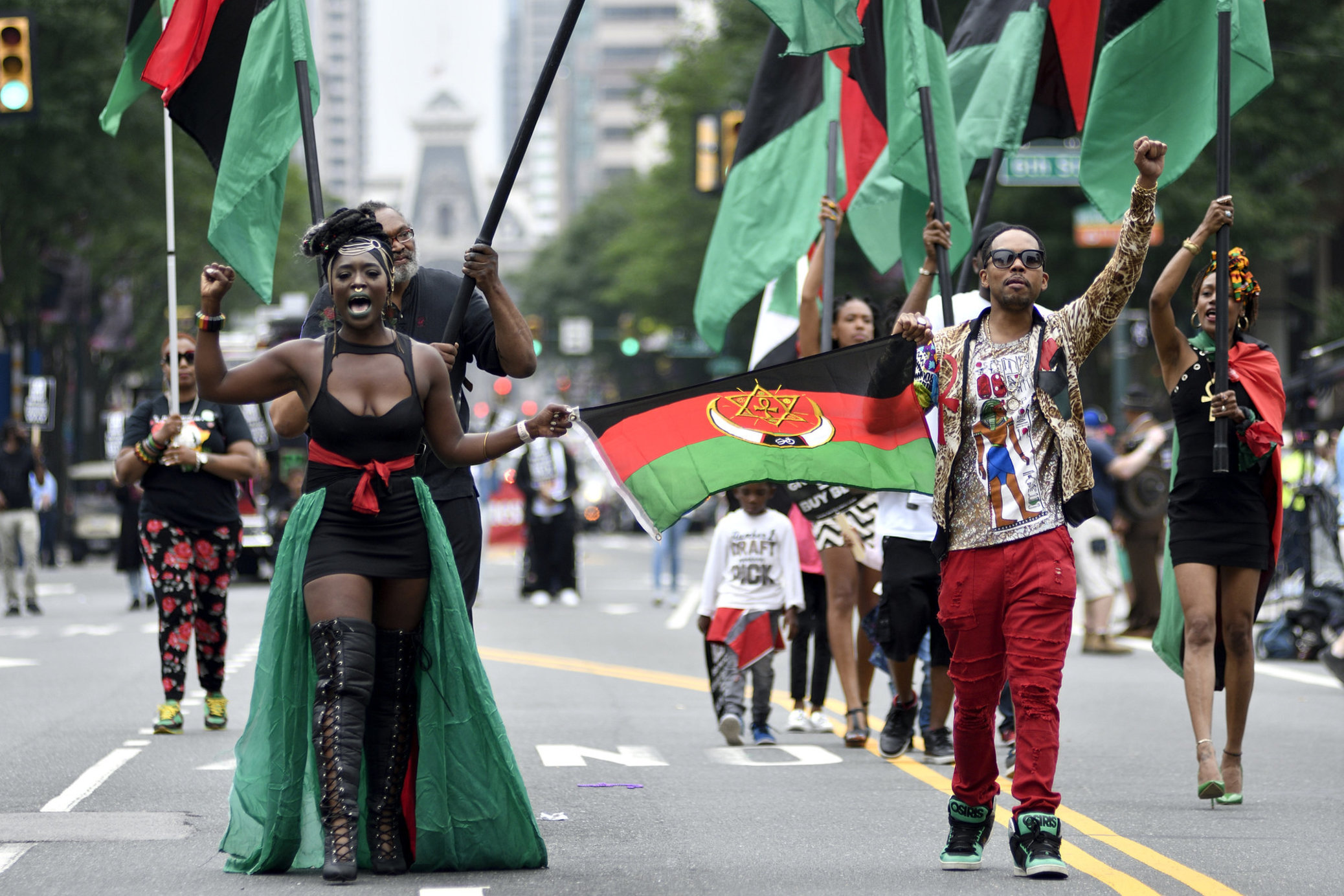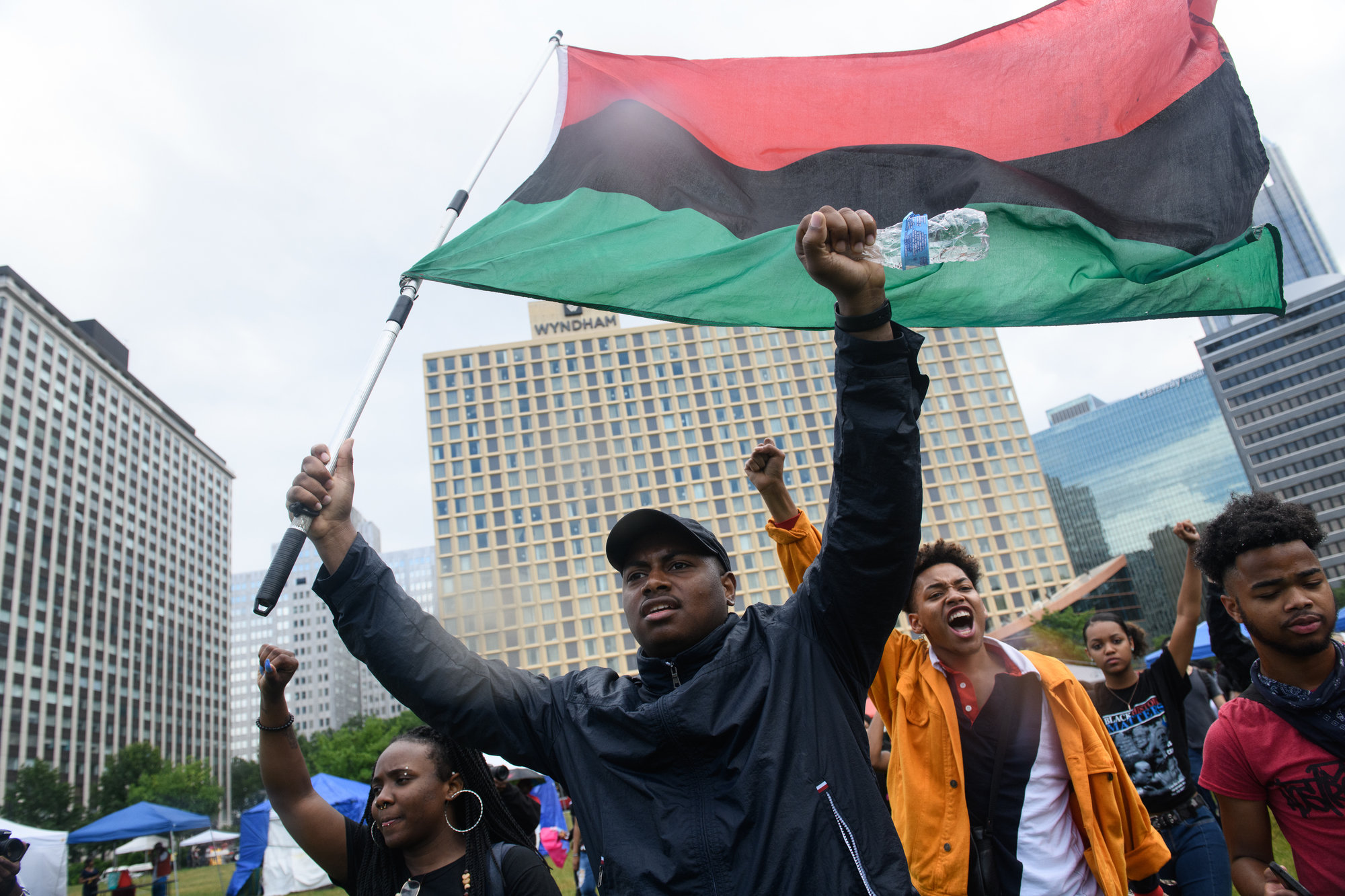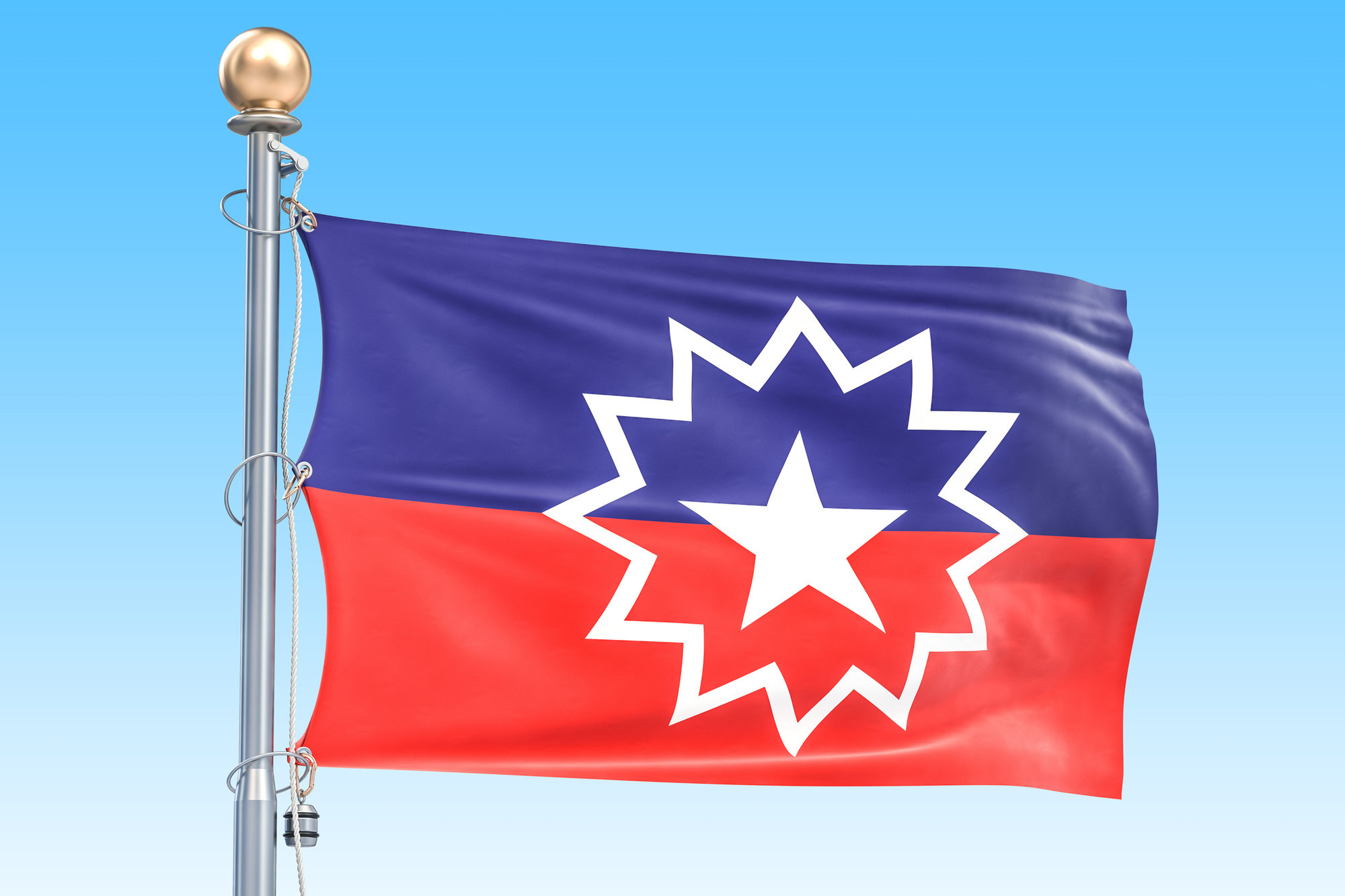
More people should know about the holiday Juneteenth, and its significance in American history and, more specifically, Black history. Every June 19, celebrations take place in Black communities around the US. The day marks the official end of slavery in all 50 states (well, the day slaves became privy to this), and celebrates Black freedom and achievement.
Sadly, the holiday is not taught in most schools, which is a major problem within our school systems. We celebrate the Fourth of July, which marked American's independence, we should also celebrate Juneteenth, which marked the independence of Black Americans, too. If we honor freedom, then we need to honor Juneteenth, the day all slaves were truly freed.
It's more important now than ever to celebrate this holiday. While parades and celebrations will take place in Black communities, other communities can celebrate the important holiday by educating themselves on racism in a variety of ways or donating to organizations that combat racism. Check out the films and series in Netflix's Black Stories or watch a documentary like 13th that spells out the systemic racism that exists in America. Then, tell the kids all about the holiday. It's not an easy conversation, but a necessary one. True change will begin when the next generation actively makes a difference.
Read on to learn all about the history of Juneteenth, how and why we celebrate, and some of the traditions involved with it. Here are 15 facts about Juneteenth that we should have been taught in schools.
Juneteenth Isn't Just About the End of Slavery
June 19 is not about slaves being freed. It marks the day that enslaved Texans had been free for two and a half years, and yet had never been informed. Juneteenth celebrates freedom for all of those slaves, including the ones who didn't even know they were free yet. It's a day to celebrate Black excellence and emphasizes education on race issues.
The Emancipation Proclamation Should Have Freed All Slaves
When the Emancipation Proclamation freed slaves in 1863, news didn't travel to some of the southernmost states. It wasn't until June 19, 1865, two months after the Civil War had ended, that slaves in Galveston, Texas, found out that they were truly free. It took two years and Union soldiers coming all the way south for these slaves to finally find out that they were free.
It is Not Yet Considered a National Holiday, But it Should Be
While many people observe the holiday, it is not recognized as a national holiday. For example, the Fourth of July and Columbus Day are nationally recognized holidays. Juneteenth celebrates a momentous part of American and Black history when all slaves were truly free. Now, many state governors are recognizing it as a holiday, but there has not been any action on the federal level.
Maj. Gen. Gordon Granger Publicized the News That Slaves Were Freed
A Union soldier, Maj. Gen. Gordon Granger, made the announcement that all slaves were free. Enslavement ended slowly, as many slave owners were not eager to let their slaves know that the Emancipation Proclamation ended slavery. The Northern army had strong abolitionist efforts and made their way down to the farthest reaches of the South to let everyone know they were free.
The Announcement Urged Freed Slaves to Stay as Workers
Part of the General Order that Maj. Gen. Granger read, said "The freedmen are advised to remain quietly at their present homes and work for wages. They are informed that they will not be allowed to collect at military posts and that they will not be supported in idleness either there or elsewhere." So, even when freed, the system was working against them.
First Celebration Was in 1866
The first Juneteenth celebrations took place on June 19, 1866, making it the oldest known celebration signifying the end of slavery. The 155-year-old holiday began with traditions of food, singing, dancing, and spiritual readings. Some of the early celebrations included fireworks that involved filling trees with gunpowder and blowing them up. Now, it's still popular to sing, dance, and cheer as well as hosting parades. Communities would read the Emancipation Proclamation as a symbol of hope.
It's Also Known as Freedom Day, Jubilee Day, & Liberation Day
Many companies have decided to give employees paid time off for the holiday to recognize it as if it were already a national holiday. Target, Nike, and more have announced that they will do so. Other companies, like Spotify, have decided to make contributions from their proceeds to the NAACP on that day.
Juneteenth Celebrations Have Evolved to Reflect on Modern Racism

In 2018, a Philadelphia parade celebrating Juneteenth was also held to protest police brutality. That week an unarmed teenage boy Antwon Rose II was shot and killed by a white police officer. Those celebrating the holiday were outrage by this violence and took the day to remember Antwon as well as the history of what June 19 means. Two years later, Antwon's mother is still fighting for police reform.
People in Texas, Oklahoma, & Louisiana Celebrated First
The first celebrations took place in Southern states, and Texas was the first state to recognize it as a state holiday. Now, it is celebrated across the country and the world as a day to honor Black culture and achievements, as well as the end of slavery. The spread of Juneteenth was thanks to the spread of Black people from Texas who moved westward.
Juneteenth Is Still Not Taught in Most Schools
One of the most common sentiments from social media is that people had never even heard of Juneteenth. As it's rooted in such important history, it's shocking that schools aren't teaching children about its significance when they cover the Civil War. In the past two years Texas schools had to switch from teaching that states' rights were the main cause of the war and not slavery. Now, they teach that slavery was the leading reason for the Civil War.
Celebrations Often Declined
Some Juneteenth celebrations have faltered in the past. At one point it was even seen as shameful to celebrate such a dark period of history. During World War II celebrations declined, but in 1950 70,000 Black people celebrated Juneteenth at the Texas State Fair in Dallas. Celebrations dropped off again in the '60s, but were back by the '70s.
Segregation Limited People's Ability to Celebrate
After slaves were freed, segregation laws were swiftly put into place. There were no parks or places to gather and celebrate publicly. So, a group of former enslaved people bought land in Houston to make a park and named it Emancipation Park. From 1870 to 1950 it was the only park and swimming pool that was open to Black people.
It Should Be Celebrated the Same Way Independence Day Is
Considering we celebrate Fourth of July like crazy, we should definitely have more events regarding Juneteenth. If freedom is important to America, then Juneteenth should be much more widely celebrated than it already is. One reason it isn't is that it competes with other holidays celebrating the abolition of slavery, and so few Americans know about it.
The Juneteenth Flag Is Symbolic

The flag was designed by L.J. Graf, and it's full of symbolism. The red, white, and blue represent the American flag, to honor the fact that the enslaved people were Americans. The star represents Texas, the final state to free its slaves. The outer star symbolizes new freedom and new people.
Juneteenth Celebrations Have Regional Flavor
Some people celebrate with oral histories and more traditional readings, while others throw a huge party and parade. Strawberry soda and barbecues are popular, and in some states it's popular to eat Marcus Garvey salad with red, green, and black beans. Plus, in the Southwest, rodeos are a way to celebrate.



